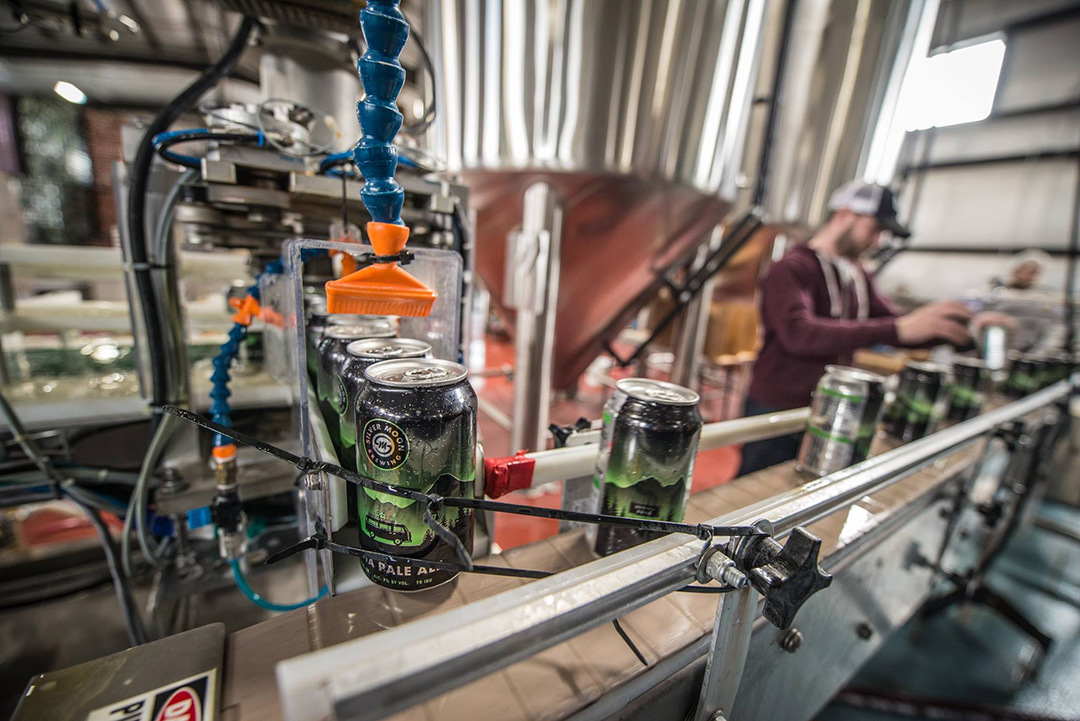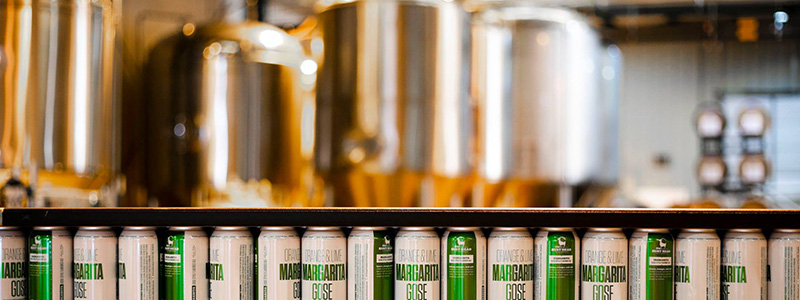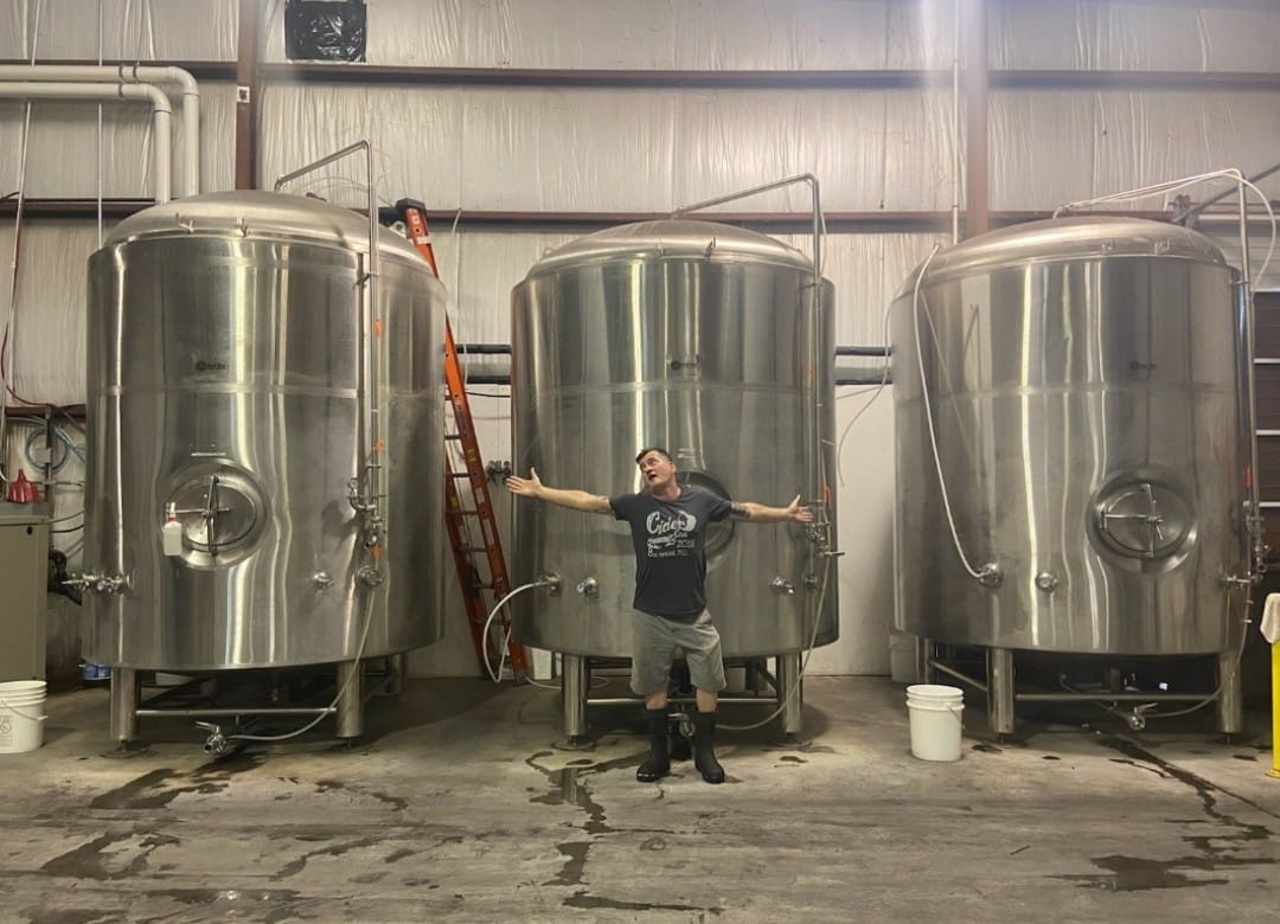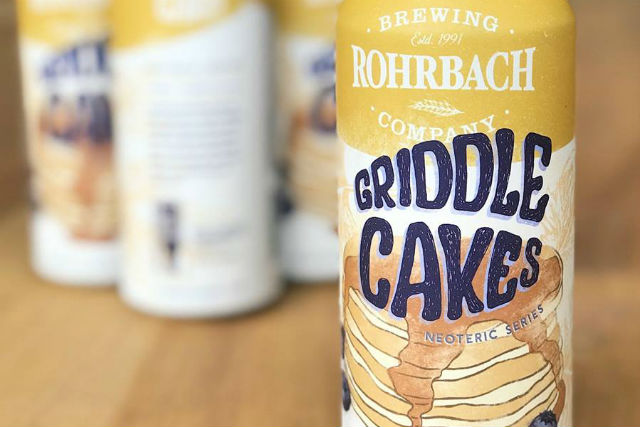
Perhaps shunned by craft brewers years ago, breweries are either opting to find new revenue streams inside its facilities either to supplement what they already are doing or to create a new branch of incorporation.
A part of Silver Moon Brewing‘s concept with contract brewing is that many regionally-sized breweries go to the same tank supplier with the same fermentors and the same plumbing system.
“[It’s] kind of silly that so many regional brewers have the very same equipment sitting across dozens or even hundreds of brew facilities when that very same tank or piece of equipment could be shared in a single facility for a much lower cost of production,” pointed out James Watt of Silver Moon.
Contracting was something that Silver Moon had done before when Watt and his partners bought the brewery six years ago. He said they inherited a couple of small contracts, “more opportunities of convenience — not so much money makers — but helping out others in the industry,” with fairly low quantities in small batches.
But now, Silver Moon, located in Bend, Oregon, is creating a beverage arm of the company for the 16,000 square foot production facility with additional growth projected ahead of time with the purchase of property immediately next to the brewery.
In Virginia, Old Bust Head is exploring the contracting arena to help drive growth.
“We’ve done a lot of contract brewing and because we’ve got this system,” explained Ike Broaddus. He didn’t go out seeking contracts, but somehow the word got out that OBH did it and by the end of 2018, it was nearly 40 percent of the brewery’s production.
From helping newer breweries with all its output, private labels for a grocery store or helping another brewery make more of the main seller, Old Bust Head has developed a system in which to work effectively since starting contract brewing about four years ago.
“We’ve spent a lot of time developing a system on how you respond to the inquiry so that you’re not chasing 14 things that aren’t gonna work out,” Broaddus said. “If the inquiry is solid, how do you ensure that they have expectations coming into it, knowing exactly what our process is and then defining that process for them.
“We’ve spent a lot of time putting it in place.”
Within the first few conversations, Broaddus said a potential partner will know everything about every cost that they’re gonna have in the process.
“We’ve done enough of them with enough partners that we’re really confident that our process works for us and the partners,” he said. “A big piece of it is making sure that everyone understands the cash. When do you pay for what and what do you supply? What do we supply, and when are you picking up your beer, and when are you paying for it? That sort of thing.”
Watts said that Silver Moon is very purposeful with its contract brewing.
“Coming out of the tech world, we enjoy the partnership and collaboration with others around us,” he said. “That’s just the world we come from.
“There are breweries out there that contract more so out of convenience or even necessity, but in our case where we’re trying to carve out an arm of the overall business.”
The brewery has pivoted recently to becoming more of a beverage company, and it is actively either pursuing or exploring everything from whiskey to CBD beverages, along with other beverage streams.
With that, Silver Moon Brewing will remain its own brand. But the bigger parent company will start putting out new liquid streams and be that contract brewing arm of the business.
Watts sees contracting brewing as a three-legged stool. All three sides can help a company balance well.
“One is those concept breweries that need and want a facility to brew on something more than a one to three-barrel system and start playing on a commercial system of 10 barrels or more,” he said. “The other is an existing brewery that needs some additional capacity — even if it’s just at certain peak times of the year.
“Then one of the emerging opportunities that we see — that some are already pursuing — is that fairly large regional brewery in the Midwest or the East Coast that maybe has saturated a local market and wants to see some continued growth on the West Coast. They have the means and ability to contract from a distance. Of course, they don’t have to beat up the beer and pay the high prices by shipping it across the country if they want to insert themselves into the California market or Idaho, Oregon or Washington.
“Geographically [there are] not many folks doing what we’re doing now. “





1 Trackback / Pingback